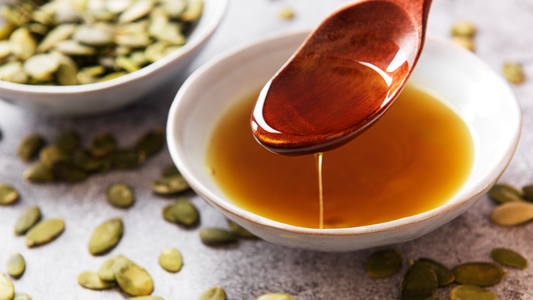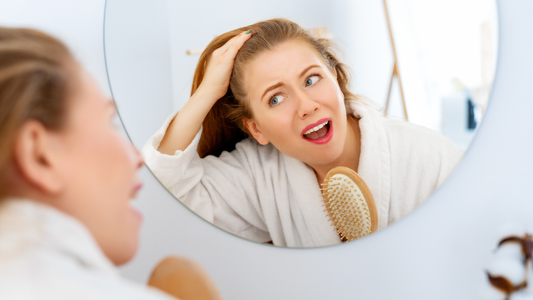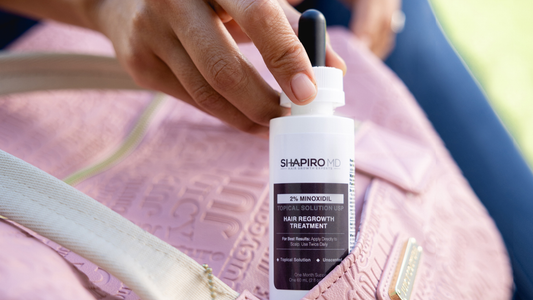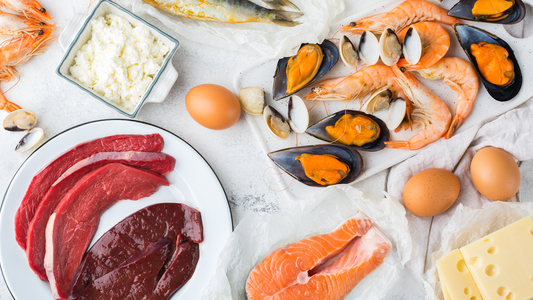If you have thinning hair or baldness, there may be something you can do about it. Approximately 21 million women and 35 million men suffer from a loss of hair, and many of them have found solutions that either slow down the rate of loss or stimulate hair regrowth. If you’re not a fan of prescription medications that are associated with unpleasant side effects, there may be natural ways to stimulate your hair follicles and strengthen the infrastructure of your hair.
Here are five powerhouse vitamins that can work wonders for your locks.
Vitamin A
Vitamin A assists in the growth of cells throughout the body, including hair cells. It also plays a role in producing sebum, which is an oily substance that keeps hair moisturized and strong. Alopecia, a type of hair loss that can affect scalp and body hair, has been linked to a deficiency of vitamin A. Fortunately, this important vitamin can be found in its beta-carotene form in a variety of foods, including:
- Spinach
- Sweet potatoes
- Kale
- Carrots
- Pumpkin
- Eggs
- Milk
- Yogurt
- Cod liver oil
The body converts beta-carotene into vitamin A, which can be readily used to build strong cells. If you don’t particularly like these foods, you may choose to supplement your diet with vitamin A capsules. Just keep in mind that an overdose of vitamin A can cause a variety of unpleasant symptoms, including nausea, vomiting, bone thinning and birth defects.
Vitamin C
Free radicals are uncharged, unstable molecules that bind to other molecules. Once they attach to molecules or atoms in your body, they can cause a variety of aging symptoms, including wrinkles and loss of hair. Fortunately, vitamin C can help protect your body from free radical damage. It’s a powerful antioxidant that terminates the chain reaction free radicals cause before molecules can be damaged. You can get a healthy dose of vitamin C in the following foods:
- Kale
- Kiwi
- Green peppers
- Citrus juices and fruits
- Cabbage
- Strawberries
- Cantaloupe
Like other vitamins and minerals, too much vitamin C can lead to unpleasant symptoms, including diarrhea, headache, abdominal cramps and vomiting. It’s best to avoid taking more than the recommended dietary allowance (RDA) of 60 mg per day.
Biotin
Biotin is a water-soluble vitamin that’s commonly taken to prevent hair thinning and baldness. Studies show a link between biotin deficiency and hair loss, but it’s important to note that biotin deficiency is rare. That’s because this important nutrient can be found in many different foods, including:
- Meat
- Leafy greens
- Seafood
- Whole grains
- Almonds
If you don’t regularly eat meat products, you may need to supplement your diet with biotin and other B-vitamins to prevent hair loss. These vitamins can aid in hair growth by keeping your scalp nourished and oxygenated.
Vitamin D
Vitamin D is an important fat-soluble vitamin that is produced naturally in human skin when exposed to the sun. If you don’t get enough sunlight, you may be deficient in this essential vitamin. Although the direct connection is not yet understood, there appears to be a link between vitamin D and hair growth. According to research, vitamin D may help create hair follicles and facilitate new hair growth. Dietary sources of vitamin D include:
- Cod liver oil
- Fatty fish
- Mushrooms
- Foods fortified with vitamin D
Studies link alopecia to low vitamin D levels, so if you think you’re deficient, you may want to get a blood test and take vitamin D supplements.
Vitamin E
Vitamin E boosts hair growth and helps prevent oxidative stress. Like vitamin C, vitamin E is an antioxidant that can help protect hair cells from damage caused by free radicals. One study shows that supplementation with tocotrienol (a form of vitamin E) leads to a hair growth increase of 34.5% in patients with alopecia. Good dietary sources of vitamin E include:
- Almonds
- Avocados
- Sunflower seeds
- Spinach
You can also supplement with vitamin E if you don’t get enough of this vital nutrient in your daily diet.
Combat Hair Loss Naturally
If you’re looking for a natural way to combat hair loss, make sure you’re getting enough of these five vitamins. There are also other ways you can fight hair loss, including shampoos, medications and surgical interventions. Check out our selection of hair growth solutions and reviews for help with your hair thinning or balding problem.




